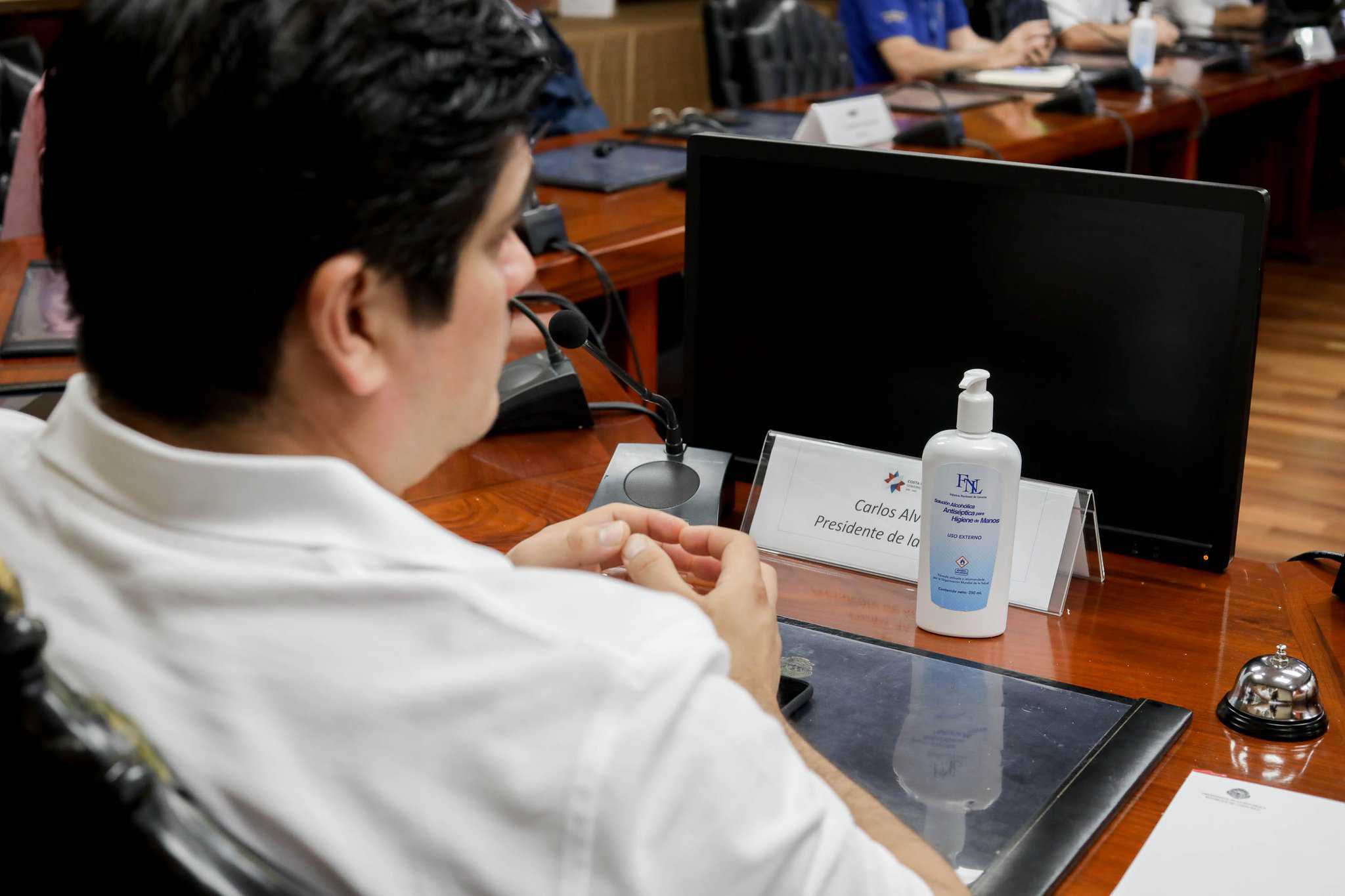Costa Rica seeks a way out of its severe fiscal crisis through a national dialogue among all sectors of the country, in the midst of setbacks after the collapse of the first call for broad negotiations.
President Carlos Alvarado and Legislative Assembly President Eduardo Cruickshank again called for a national “multisectoral” dialogue to discuss a way out of the financial crisis, amid a wave of roadblocks that lasted two weeks.
The protests, led by the so-called National Rescue Movement, erupted in rejection of an initial government proposal to negotiate an agreement with the International Monetary Fund (IMF) that was criticized for emphasizing temporary taxes rather than cutting expenses.
The call for dialogue presented by the presidents of the Executive and Legislative Powers collapsed Thursday afternoon when the main business chamber of the country refused to participate, claiming the private sector had very little representation in the process.
But the government has not given up its attempts to negotiate a way out of the crisis.
“Our call is still open, because Costa Rica needs to talk to resolve the fiscal emergency,” Alvarado and Cruickshank declared in a statement after the initial failed meeting, which was to include businessmen, unions, cooperatives and churches, among others.
“We will work in the next hours and days in a multisectoral manner to reach the best formula that allows the dialogue to be carried out,” added the two leaders, without specifying dates.
Climate of crisis
Costa Rica proposed negotiating an agreement with the IMF to address a fiscal deficit that has grown over more than a decade. In 2019, the deficit reached 6% of GDP, and the government projects it to reach 9.3% of GDP this year due to the impacts of the pandemic.
Parliament approved a fiscal reform in 2018, which included new taxes, to gradually contain the deficit, but the impact of the pandemic ruined the effort.
Independent political analyst Jorge Vega highlighted that the dialogue appears as a way to create agreements for a government without much power in the Legislative Assembly.
“Where important decisions can be made is in parliament, and that is where the government has less force. That conditions the government’s ability to respond to citizen demands,” Vega explained.
The Executive Branch’s weakness became evident when in September it presented its proposal for an agreement with the IMF in search of a loan for $1.75 billion, with a series of new temporary taxes as the main ingredient.
President Alvarado’s proposal generated broad rejection among the political forces of the legislature and unleashed an angry reaction from social movements that blocked streets.
“The space to seek agreements is limited, and the government sees itself increasingly alone,” emphasized Vega.
The analyst highlighted the willingness of the president of the Legislative Cruickshank, of the opposition National Restoration Party (evangelical) to support the call for multisectoral dialogue.
The process would be coordinated by the State of the Nation Program, an academic body linked to state universities, whose director, Jorge Vargas, proposed the methodology of the dialogue that was going to begin this Saturday.
After the collapse of the process, Vargas considered it necessary to take advantage of the willingness of most sectors to participate in the search for a solution to the fiscal emergency.
“The call must not be canceled,” Vargas said Thursday, when he announced that the initial negotiation process he organized had not been successful.
“The joint call for an urgent dialogue remains open; the country needs to resolve the fiscal emergency,” said Vargas.






